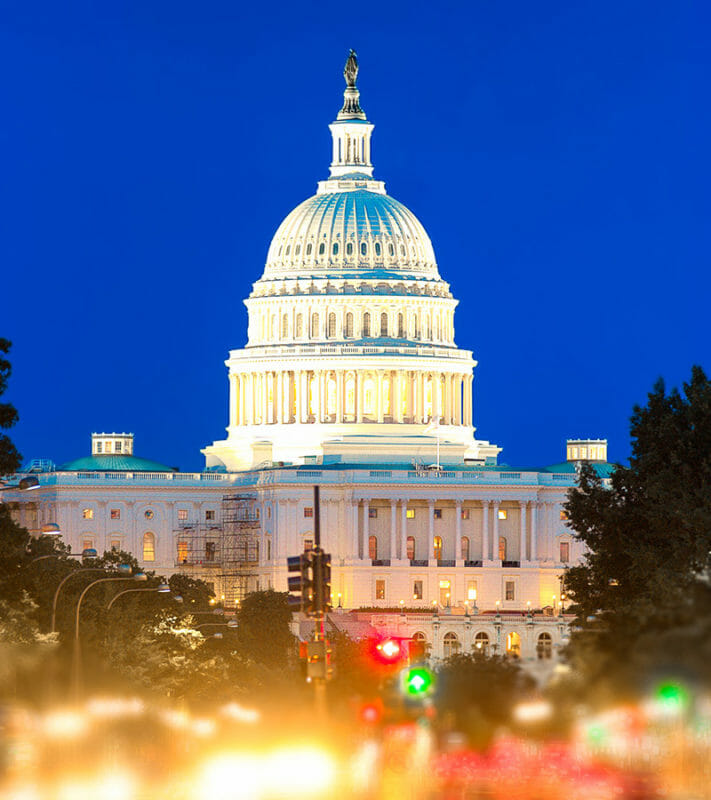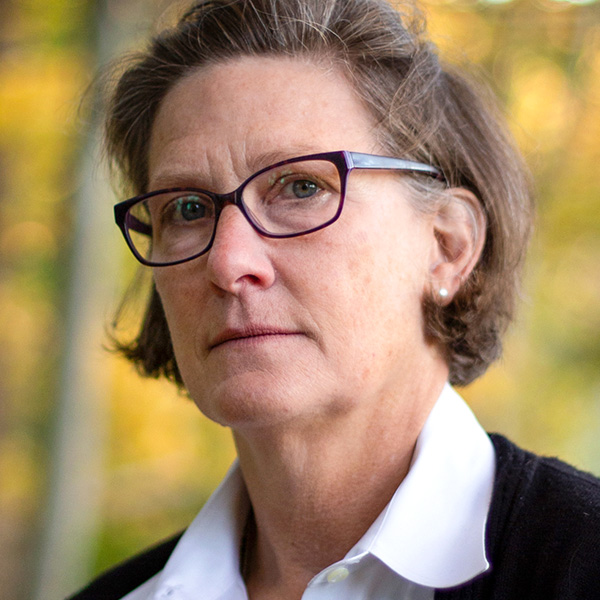Our Work
U.S. Legal Advocacy
Since its founding, CATF has relied on a tenacious team of lawyers who apply the principles of U.S. law to the fight for climate action, clean air protections, and the development of critical carbon-free technologies.
CATF’s legal team:
- Litigates on behalf of nonprofit clients in U.S. courts, seeking cleaner energy systems;
- Develops comprehensive comments on proposed Executive Branch regulations;
- Drafts statutory language; and
- Analyzes the legal landscape and provides strategic, tactical, legal, and regulatory advice to across the organization, and to our clients

Our Goal:
To leverage U.S. legal principles and, as needed, the courts, in CATF’s work to decarbonize industrial and transportation sources of climate pollution while protecting people and the planet from health-harming air pollution.
Our impact in U.S. legal advocacy
Scope of Work
- Litigation: CATF attorneys represent other nonprofit client organizations in administrative and judicial proceedings, seeking the reduction of climate and other air pollution, and advancing the clean energy transition.
- Regulation: The CATF legal team works to develop comprehensive comments on U.S. Executive Branch rules related to climate, clean air, and the energy transition.
- Statutory drafting and advocacy: The CATF legal team supports CATF’s federal and state legislative advocacy, aimed at decarbonizing energy and transportation systems.
- Analysis: CATF’s attorneys analyze the legal landscape to flag threats and identify opportunities in existing laws and rules, supporting programs and projects across the organization. This work is expansive – it includes leveraging the Clean Air Act and other federal and state statutes for public health and climate pollution reduction, working on regulations for the licensing of advanced nuclear reactors and fusion energy generators, and advising on the operation of tax credits to stimulate the commercialization of carbon-capture and sequestration and other technologies, and the infrastructure needed to support the energy transition.
- Advice: CATF’s attorneys work across the organization to provide tactical, strategic, regulatory, and legal advice to each program and team, as well as providing advice to our nonprofit clients and allies.
Achievements
- Successfully defended, with ENGO colleagues, the greenhouse gas Endangerment Finding against attacks, in CHECC v. EPA, D.C. Cir. No. 22-1139 (May 2023).
- Advocated for and achieved a strong proposed rule governing the strengthening of rules governing power plant mercury and other air toxics, to reflect advances in pollution control technology since 2012. A final rule is expected in Spring 2024.
- First-ever CATF deep engagement in FERC, DOE, and BLM rulemaking efforts around electric transmission planning, permitting, and siting. The buildout of such energy infrastructure in a manner that engages communities, reflects environmental concerns, and occurs rapidly and thoughtfully is essential to a just and effective energy transition that reduces climate pollution.
- First-ever CATF engagement in Nuclear Regulatory Commission discussion about regulating fusion energy production (2023).
- First-ever CATF deep engagement in anti-greenwashing guidance and rulemaking before the Securities and Exchange Commission, the Federal Trade Commission, and the Commodities Future Trading Commission, in 2022-23. Awaiting final policy and rule announcements.
- Argued for environmental clients before the Supreme Court in West Virginia v. EPA, 142 S. Ct. (2022), ultimately persuading that Court to preserve EPA’s authority under section 111(d) of the Clean Air Act to regulate existing stationary source greenhouse base emissions. Currently advocating for the strongest possible rules on remand, using the “best system of emission reduction” at power plant sources of CO2.
- Advocated for strong Clean Air Act section 111 rules governing emissions of methane from oil and gas development activity. A strong proposal has been issued – CATF’s attorneys led the comprehensive commenting process before the Agency, and await the final rule in Fall of 2023.
- With our allies in the environmental community, secured and successfully defended EPA authority to regulate coal plant air toxic emissions, and secured a rule in 2012 reducing those emissions by 80-96% in 2017 compared with 2010 levels–the Mercury Air Toxics Standards (MATS). Our advocacy on the Clean Air Act’s Good Neighbor program and on ozone implementation rules have also contributed to air pollution reductions that are saving 20,000+ lives per year.
- Helped win and defend EPA’s New Source Power Plant Carbon Pollution Standards, under which no new coal-fired electric power plants can be built without meeting strict carbon dioxide limits.
- Persuaded the U.S. Court of Appeals for the DC Circuit to block EPA from exempting biomass emissions from Clean Air Act regulation (2013), and convinced EPA to remove biomass combustion as a compliance option in the federally administered version of the Clean Power Plan (2016), and in the proposed rule on remand from West Virginia v. EPA. Additionally, steered Congress away from a policy that could have resulted in a 50% increase in conventional ethanol consumption (2017).
- Mercury and other air toxics emissions reductions from coal-fired and oil-fired power plants as a result of regulatory and litigation efforts that began in the late ’90s and supported the final U.S. EPA Mercury and Air Toxics Standards (MATS), which were finalized in 2012 and went into effect fully in 2016. We continue to defend these rules.
As described above, CATF’s legal team continues to advocate for the Clean Air Act and other authorities as the basis for strong regulation and control of climate pollution. We work as well to secure thoughtful rules enabling rapid development of emerging technologies and the infrastructure needed to support a just, clean, energy transition in the United States. Our work has expanded as our team has expanded, beyond our focus on the Clean Air Act, and into advocacy before the Federal Energy Regulatory Commission, the Bureau of Land Management, the Department of the Interior, and EPA’s Office of Water.
Our experts working in legal advocacy
-

Ann Weeks
Legal Director -

Shaun Goho
Senior Counsel -

Darin Schroeder
Methane Legal and Regulatory Director -

Hayden Hashimoto
Attorney -

Alan Masinter
Attorney -

Frank Sturges
Attorney -

Mary Sasso
Associate Attorney -

Veronica Saltzman
Wendy Jacobs Legal Fellow -

Katie Blair
Legal Fellow -

Erin Barry
Paralegal/Legal Assistant
Related resources
Fellowship Opportunities
Wendy Jacobs Legal Fellowship
The Wendy Jacobs Legal Fellowship is awarded annually with the opportunity for a one-year extension to an exemplary candidate who is a recent law school graduate with an interest in climate change and air quality public health law. As part of the Clean Air Task Force team, the Wendy Jacobs Fellow will work with the legal director and attorneys, and other program staff within all phases of our legal and litigation efforts to advance climate and clean air solutions.
Contact us for more information if you’re interested in applying.
Stay in the know


